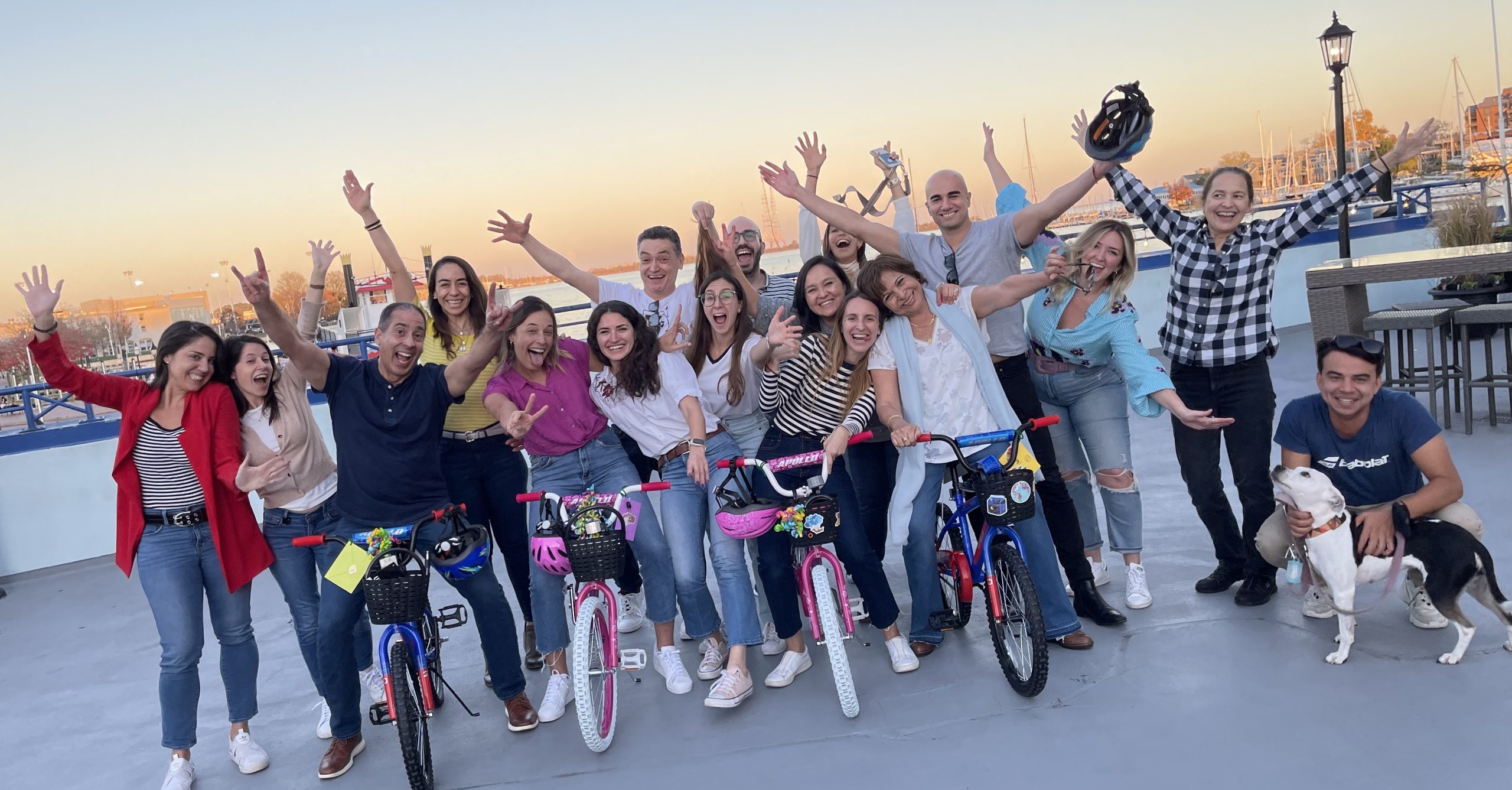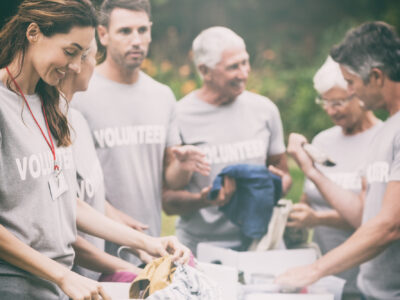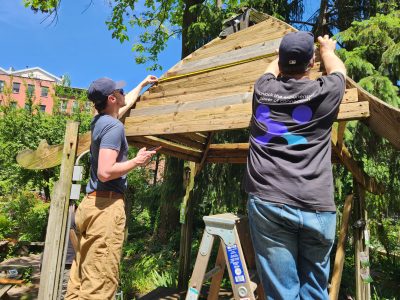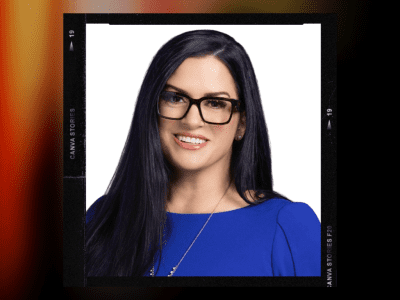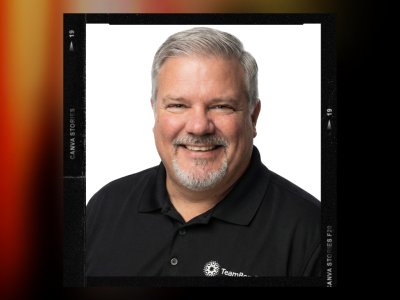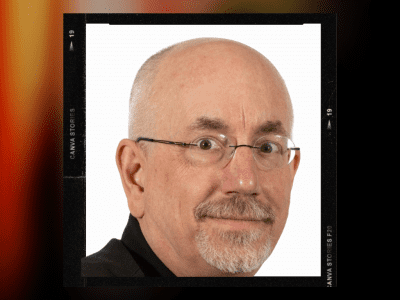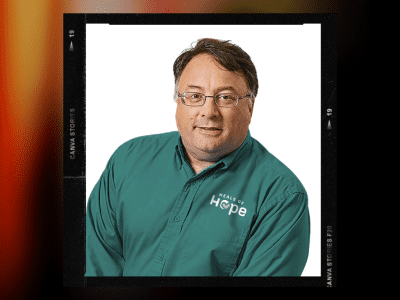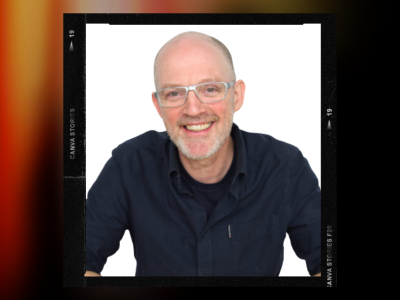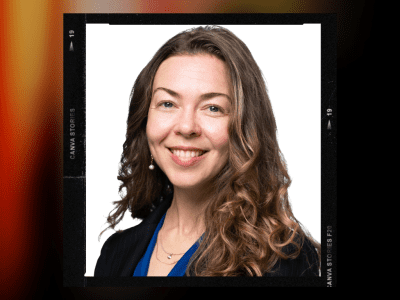STRONG TEAMS DON’T HAPPEN BY CHANCE 
Tiny Libraries, Huge Impact
w/ Scot Wirth

Use the buttons above to listen now.
Transcript - Tiny Libraries, Huge Impact
Rich Rininsland: On this episode of Team Building Saves the World.
Scot Wirth: I not only work here, but I’m also a client or whatever that is. We’re open 24 7, but our shelves are literally two feet wide. You like, there’s just no, there’s just no chance.
Rich Rininsland: Please don’t use my internet at my Little Free Library.
Scot Wirth: So you don’t even need to dig a hole anymore. So it made it a little easier that way. Right?
Rich Rininsland: Come on, I have a post hole digger for a reason.
Hello team. It’s me. Your old friend, Rich Rininsland host of Team Building Saves the World. And from an early age gang, I was a big fan of books. Honestly, a local library was my favorite place to be and my parents appreciated that since they didn’t have to pay for the books I would only read once. Well, did you know that there are small book lending boxes currently in operation across seven continents called Little Free Libraries? And today we’re gonna talk to the Director of Operations at Little Free Library, Scot Wirth. But before we do, I have to share some love with all of my supporters at TeamBonding.
If your team is ready to experience teamwork through the power of play, then visit TeamBonding.com to learn more. Now, team, join me in talking to a man who learned all about building community from a small box in his front yard full of free books, Mr. Scot Wirth.
Scot Wirth! Thank you so much for coming on. We appreciate having you here. Can we start off, normally here’s what I like to do is I, I like to have my team out there learn a little bit more about you just to get to know you and your background. But I would like you this time to start off, can you tell us about Little Free Library and how you got into that?
Scot Wirth: Absolutely. Thank you for having me here today, Rich. I do appreciate it. So I’m the Director of Operations at Little Free Library. We are a nonprofit organization based in St. Paul, Minnesota. Our founder, gentleman by the name of Todd Bol, put up the first Little Free Library in 2009 in his community in Hudson, Wisconsin, which is about it’s about 30 miles east of St. Paul, just across the border into Wisconsin. In 2012, Todd formed the nonprofit Little Free Library, and so we will be celebrating our 13th birthday here in May of 2025. Todd put up the first one in front of his house in the shape of a a one room schoolhouse in honor of his mother, who was a former teacher.
And then it just kind of grew and grew and grew from there. This past March, we celebrated our 200,000th Little Free Library. We are in over 120 countries. We are in all seven continents. There is one at the South Pole.
Rich Rininsland: Awesome!
Scot Wirth: Yeah, it’s really cool. We have a photo of it and everything. It’s, kind of one of those fun things we get to share. Like we’re on all seven continents, we’re going for this. That’s really nice. And so yeah, I’m the director of operations. I’ve been here for four years. We do run an online store, which is where we generate most of our funding from individuals who purchase. We then take that money and put it into our programs.
So we donate and grant libraries throughout the year through our Impact Library program. Our read and color library program and our indigenous library program. So last year we donated and granted almost 900 Little Free Libraries.
Rich Rininsland: So for those who may not actually be aware, what are they?
Scot Wirth: What they are, we call ’em book sharing boxes. So about half of the ones that you see out in the wild people have purchased from our organization. The other half people have built themselves so they reuse microwaves, bookshelves, anything that can hold books can be a Little Free Library.
So anything, you know, if people do build them themselves, we ask them to to come to our organization, buy a charter sign from us, and then that means that they’re a registered Little Free Library.
Opens up some opportunities for them, but they can put their library on the map. They get their own individual charter sign.
And it goes to creating the community that we’re all about trying to commute. Dang. Trying to create.
Rich Rininsland: And can I ask, what do penguins like to read?
Scot Wirth: What do penguins like to read? We don’t know. Yeah, penguins are at the South Pole. We don’t know. I mean, ’cause it’s the research facility, right?
So is it just filled with…
Rich Rininsland: Okay.
Scot Wirth: Is it just filled with the, like science books or is it the complete other end of the spectrum? And, you know, like, it’s…
Rich Rininsland: So what, is the methodology of it? How is it unique compared to like going to an actual like public library?
Scot Wirth: Clearly it is. This is all volun—
oh, sorry, Rich.
Rich Rininsland: I was gonna say clearly it’s a small box. That is set out full of books.
Scot Wirth: It’s all volunteer led. It’s all driven by the individuals that choose to do this. We have… we have public library systems that have their own network of Little Free Libraries. We have civic organizations that have their own networks of Little Free Libraries.
We’ve got suburban houses that, you know, I mean, that’s kind of where it started. It’s just an individual person that wants to do this in their community, and that’s really what we have found through our steward surveys is that putting one of these boxes in your community creates a greater sense of community within those people living in that area.
You stop, you look, you see what kind of books are in there, someone else stops. Now you’re talking to that person. You may have never seen them before, but you live a block away from them or something, and all of a sudden it creates this sense of community within your neighborhood and finding a good book that you’ve never read before and it doesn’t cost you anything.
That’s a great feeling. Then you don’t have to put one in there.
Rich Rininsland: The working philosophy is take a book, leave a book.
Scot Wirth: If you’ve got one to leave, sure. But you’re more than welcome to take one. You don’t have to you don’t have to put one back or the next time you come, only put, you know, put four in there and don’t take any out.
It’s really, it’s really just, it’s, it’s all volunteer led, it’s all community based. It’s, there are no parameters. There are no rules around what you can and cannot share. So hopefully people have fun with it.
Rich Rininsland: Yeah. Great. Can you give me like a good example, like a, like an actual story of, you know, this sharing spirit that you get from the Little Free Libraries.
Scot Wirth: Anecdotally, I can share a personal story ’cause obviously I not only work here, but I’m also a client or whatever that is.
Rich Rininsland: Yep, yep.
Scot Wirth: Clearly not the commercial that it was intended for. So I do have a library, a Little Free Library in front of my house and you know, when you first put it up, you want to check it all the time. Make sure you’re like, is anybody taking anything out of this? Does it really work? But yeah, that first time, that first time that, like a child from down the street that, you know, I live in South Minneapolis. There’s people on my block that I’ve never met before, which is shocking to some people.
But we live in an urban area and you don’t always get to meet your neighbors.
Rich Rininsland: True.
Scot Wirth: You know, seeing the child come up and open up the library and take out a book and, you know, like show it to their parents and say, can I have this? And the parent not really realizing like, well, I don’t know, I mean, did taking something for free doesn’t really seem right.
Rich Rininsland: Right, right, right.
Scot Wirth: But then like, you know, because I was watching this and because they had never seen it before, I kind of stepped outta the house and it’s like, it’s all free. You take whatever you want, you don’t have to put anything back in there.
And like the look on the child’s face was just, you know, like the, “ah, being able to take this thing home” and then, you know, right there you’ve got ’em hooked, right. I mean, like this child now, I see this child ride their bike up and down the street all the time. They stop at the library that looks at the window.
Sometimes they open and search through and stuff. So that’s what it’s about. Like seeing that child get happy about a book, right?
Rich Rininsland: Yeah. How do you maintain it though? Like how do you get it where it’s functioning on its own?
Scot Wirth: I mean, you just put it in the ground. Really. I mean, as long as there are books in it, it’s basically what it’s doing.
Book supply is a challenge for some individuals for sure. We have recommendations on our website about how to supply books. Not everybody can go and buy brand new books and put them in their Little Free Library. And that’s not what it’s meant to be. Like some people do want to share brand new books, and that’s a great place for people to get brand new books.
But I don’t think I’ve put, I’ve never bought a book to put into my Little Free Library.
Rich Rininsland: Hmm.
Scot Wirth: You know, it’s either through Goodwill and you go there and you, you know, just get donations from them. Donations from neighbors, from your community, people down the street, you know, like there’s libraries.
They’re always giving away books that after they’ve called them from their, from their stacks and they can no longer rent them out. They, you can just go and get ’em. So, and then we’ve got all sorts of resources on our websites as well as for individuals that may need it.
Rich Rininsland: Excellent, excellent. So what’s the community like for the maintainers, for those people who have actually volunteered to put one of these in their community? Like is there a social media presence for them or is it, is there just a way for them to constantly talk to each other, to update, to, you know, share best practices, what have you?
Scot Wirth: That’s a really good question, Rick, because yeah, that is one of the things that as we’ve grown as an organization and more and more of these volunteers come to us. It’s like, how do we connect them, right? Because we don’t want any of them to feel like they’re on an island all by themselves.
So we do have a, we do have a Facebook group. Once you’ve gotten the charter sign from us and you get your individual charter number, that kind of unlocks the entrance into the, into the Facebook group. We are on I’ll have to go to the marketing department and see what the, how to say this, but yes, we are on all platforms. We do have a social media presence out there but the most, like recently we have developed in just over a year ago we started Team LFL, and it’s basically just a clearing house for volunteers.
And so we know that there are people that wanna volunteer that cannot have a library, and so they’re wondering how they can get involved. There’s also people that have a library that need repairs or need books or something like that. And due to any sort of circumstances, they just can’t fulfill the commitment.
Rich Rininsland: Right.
Scot Wirth: So finding a place to put all these people, I have books, I need books, I need assistance with repairs. I know how to do repairs. I want volunteer my time, but I can’t have a library. We call it Team LFL, we’ve got it, it’s on our website. You can go there and sign up to volunteer in any sort of capacity.
And that’s really kind of connected people. Stewards is what we call ’em, stewards across the country and finding people outside of their immediate community, in the larger community, in the areas that they live.
Rich Rininsland: Have you seen any sort of, ’cause we, I was talking about like sharing best practices and making sure that everything has a, you know, my Little Free Library is very similar to their Little Free Library so that everybody knows what these things are supposed to be and how they’re supposed to look. But what kind of unique customization and styles have you seen people implementing?
Scot Wirth: There’s some fascinating people out there that know how to do some of this stuff. We’ve seen ones made out of old tree trunks. They hollow out the tree trunk, put a door on it, and there’s this Little Free Library. We try to highlight some of these individuals in our blogs, in our monthly newsletters, like libraries of distinction. There, yeah, there are some people out there that are very, very creative.
We have some creative ones on our website as well, so there’s a little bit of flare there if you’re interested in that. But the, you know, are definitely people out there that take this and love it and, and add their own, sort of, like you say, flare to it. And then, you know, it’s in front of their house, it matches their house. Some of those are really cool, like, I don’t know, they get basically an architect to build it and it looks just like their house. It’s fascinating.
Rich Rininsland: That’s amazing. But let’s talk, what is Little Team LIbrary?
Scot Wirth: Team LFL is what we call it. Okay. Yeah, that is where volunteers can go.
So if you want to be involved with Little Free Library in any sort of capacity, maybe you already are a steward, but it, it’s a place you can go to find if there are opportunities in your area, or if there aren’t any, you can say, well, I’m available to do X, Y, Z. So we’ve got, we have, I mentioned our birthday coming up here in May.
We have Little Free Library week, so there’s a celebration and we put things out there. We ask stewards to do certain things, and we have a number of steward meetups that are planned for that week so we’ve reached out, stewards have come to us and said, I, I’ll host one of those meetups. And so they put the word out in Little Free Library.
Either they’re a steward or maybe you’re just in the community. Maybe you just love sharing books and you can go to these meetups and you can meet other individuals in your community that are like-minded and like Little Free Libraries. And it’s, you know, you can share ideas, you can talk about books, you can do a number of different things at these meetups.
But it is, like you mentioned, getting that community, that larger community together in places that just wasn’t happening, you know, in the first few years of the organization.
Rich Rininsland: What are some methods that these people use to do? So, I mean, the hardest thing that it seems to be happening nowadays is simply that that ability to even not even know who your nearest neighbors are, but to reach out to the larger community around you.
How do we get people past that first step of, “how do I even start”?
Scot Wirth: Yeah, that is a very good question. I don’t know if we have the answers to that. We’re definitely trying things. We’re definitely, you know this is one way that we’re doing it is we’re encouraging these individuals to reach out the best they can, right?
Like through Team LFL, the Facebook page. Hey, there’s a meetup at, you know, 1 2 3 Main Street. Come on by, bring a book. Grab a book. You know, we’re just gonna sit there and talk. We’re gonna celebrate Little Free Library’s birthday, hand out bookmarks, that sort of thing. You know, some people actually go door to door, like handing out flyers, you know, like just the old little brute force method, right?
The way we used to do it before the internet, like, here come by my house. And I know that there’s probably some of these people, these individuals or the stewards, they have their very own Facebook pages based around their library. And then they send out, you know, notifications based or through that channel so that people that are following that individual library get the information.
And then again, some of ’em are attached to organizations. So public library systems, you know, they’ll put it out there that, Hey, we’re doing this at our Little Free Library during the Little Free Library week. Others are, you know, there’s barbershops. There’s laundromats, there’s places like that that have, you know, it’s a community gathering space and they put it out and say, come on by on this Saturday we’re gonna have books, we’re gonna have lemonade, we’re gonna have bookmarks, and it’s just gonna be a community sort of gathering.
And we wanna share this with everybody.
Rich Rininsland: Can it seem to newcomers a little daunting? And if so, how do you get them past that? How do we make this simple enough to make anybody out there who’s listening and thinking, this sounds like a great idea. I don’t know if I have the time, I don’t know if I have the effort, I don’t know if I have the books to actually make this a self-sustaining and profitable is the first word that came to mind, but of course, it’s not a profitable endeavor. It’s a community building endeavor. So how do we get them from sitting here thinking to themselves, this sounds like something I want to do to actually doing it.
Scot Wirth: Well, one, we’ve made improvements on what you can get from our store, right? Okay. So like before it was just a post in the ground. You had to dig a hole.
Rich Rininsland: Yeah.
Scot Wirth: We’ve got different ways now. We can, there’s a, a ground screw so you can just screw the post into the ground. We even have ones that sit on top of the ground, so you don’t even need to dig a hole anymore. So we made it a little easier that way. Right.
Rich Rininsland: Come on. I have a post hole digger for a reason.
Scot Wirth: But outside of that is, is literally the statement I made before anything can be a lit free library. Okay. It doesn’t need to be a box from our organization. It doesn’t need to look like a house, you know? Like it.. Anything can be it. And mentioned like barbershops and laundromats.
A bookshelf inside of a community, gathered a area that’s you know, services the community. Whether it’s something like that, like a barbershop or a laundromat or just a community center or you know, a park building, you know, anything can be a Little Free Library and that’s where it starts.
It’s just make that step, this is what we’re doing. And if it’s four books, that still counts, right? But once people start to see that, “oh, okay, well I got this book from there and I have these two at home”, and now four turns into six, and then you know, the next person comes by and is like, “that’s what I should do with those 10 books that I have at home, is I should bring them and put them on the shelf”.
And so now six turns into 16 if I did my math correct. That’s really where it starts. And trying to tell people that, again, it doesn’t need to be this grandiose 100 book mega mansion in front of your house. It can literally be a… we’ve seen people with plastic tubs put them at the end of their sidewalk.
It leads up to their house and a sign or handwritten sign that says, Little Free Library. And sure enough, you know, people open up the lid, they search through the books, they take what they want, they put the lid back. I mean that literally. That’s the bare minimum. You just take it out and set it down and say what it is, you know, like, and then you have the other people that do the very large mansions.
Rich Rininsland: The obvious fear seems to be, of course… somebody’s gonna take everything. That container is gonna be gone when I turn around in five minutes.
Scot Wirth: I mean, if you value the container, then yeah, that’s a problem. But…
Rich Rininsland: If you’re putting it down the end of your driveway, I’m pretty sure you don’t value it though, that overly much.
But how do we get over that fear? Because that there, there are gonna be those people who are concerned about the fact that people are gonna come and they’re gonna take the books and that’s fine. That’s why I put them out there. But I’m never gonna get anything back. So this community building dream that I had just became a, oh, you guys are just stealing my books now.
Scot Wirth: Well, I mean, it’s kind of in the title, right? We’re a Little Free Library. You can’t steal anything that’s free. Technically, right? So yes, there are people that decide that they want to clean out the libraries. You know, the market for used books is not something that anybody I think should really rely on to make a good living.
But who knows? Maybe that person that took those books needs them… because they have a school that they need to bring them to or something. We just don’t know. Like we never know what the, the reasoning behind it is. But again, it’s a free service and if you’re going to, you know, if you’re going to join the movement, if you’re going to join it, that’s the jump you do have to take.
This is that like I’m putting these out there for people that need them. If somebody needs 40 books, because I filled my library with 40 books… If somebody needs those 40 books. They probably need those 40 books for a good reason. Sure. And if they’re going to give them to other people, maybe they’re taking them to the church and they’re going to give them to individuals who are, are homeless.
Maybe they’re taking them to a school and they’re gonna give all the books to a school. Who knows? But it is a free service. It is something that, yes, you do have to kind of suspend that, but it is, you know, like there is no it. Unless you actually physically take the box itself out of the ground, off of private property, there is no stealing.
Right. I mean, like, it it, you’re taking something that’s being offered to the public for free.
Rich Rininsland: Well, I still have the hole in the ground. I’ll just get another post.
Scot Wirth: Yeah. Right. Well, and then, I mean, but if you have the post hole digger, you want to dig another one, right?
Rich Rininsland: Several. Yeah. Yeah. If only just for, for support.
The, so the, the big question that also comes to my mind is the… I am the father of a teenager. She is away in college and I remember very clearly her when she was little, voracious reader. Could not get her hands on enough books to the point where when she got into her early teens for Christmas, she kept asking me for books.
She wanted an entire collection of books. But at some point, tablets got in the way. . And suddenly it’s not about books anymore. How do we get, as a parent, how do I get my kid back to Parchment? How do I get her back to flipping through pages and that visceral love of reading again?
Scot Wirth: I don’t know the answer to that question. I have two teenagers myself, and yes, I battle it as well on the other side, you know, like to also kind of speak out of both sides of our mouth, right? Yeah, yeah. We, we’ve also embraced that, right? Like, we have an app, we have a Little Free Library app. And it’s got a map on it, right? So anybody who is a registered steward, they can put their library on the map. And so people who are not stewards can download the app.
And I encourage you to do so as, as well, Rich. And so you can find Little Free Libraries wherever, you know, like let’s say you’re on vacation mm-hmm. And you need a beach read, you know, like, oh, is there a Little Free Library nearby?
I’ll open up the app, I’ll look at the maps. Sure enough, there’s one, two blocks away. I’ll walk over, see if there’s anything. You can also set it up. So let’s say you’ve got a number of books in your house that you wanna donate. You can set up a route so that you just take a bag of books and you walk your neighborhood and you fill the Little Free Libraries as you go along.
But we’ve also, you know, with that app, right? We’ve reached out to public library systems, school systems, that sort of thing, and said, look, we have this, we have this tool, and we have these boxes in your community. Is there any way that we can help you? So that. As Rich is walking down his neighborhood and he sees a Little Free Library on, there is a QR code on, there is, you know, directions on how to get to said public libraries digital archives.
Okay. Or how to get, you know, maps to the physical library. Maybe this person doesn’t know where the actual library is.
All of the services that are inside our public libraries are just so integral and so important to community members, whether it’s using the copier to copy a resume, whether it’s using the internet service to fill out a job application, and there are so many things inside that public library that people, whether they don’t know about it, they can use a Little Free Library to gain access to what they have online.
Learn about where the actual library is and go and take advantage of those services. So it may not be about turning the page of your book mm-hmm. But it is certainly something that we, you know, if somewhat embraced on the tablet side of things or the electronic side of things, if you will, that we know we have to embrace it, we have to go forward with it, and that’s the way that we see connecting people to those places that those services are available.
Rich Rininsland: I was gonna ask if there was ever an occasion where a Little Free Library was headbutting or getting headbutted by the local public library, or has it always been kind of a “We just work hand in hand because all we’re trying to do is get reading material out to the masses”.
Scot Wirth: In the beginning, there was definitely some of that. There was some, like “you’re trying to put libraries out of business”. Like, nope, we’re never going to a ever be able to do that, right? We, you know, we’re open 24/ 7, but our shelves are literally two feet wide. You know, like there’s just no chance.
Rich Rininsland: Please don’t use my internet at my Little Free Library.
Scot Wirth: You know, we are yes. So recently, yeah, or not recently. For a number of years now, we have been able to kind of bridge that divide. We go to the American Library Association Conference every year. There’s an organization called the Association of Bookmobile and Outreach Services.
It’s basically all the people that work inside of libraries that do the outreach services, they go out into the community, bring out all the stuff, majority of them use Little Free Libraries, utilize the ones that stewards have put up inside of their communities. And know that, you know, like they can leave information in there and people in the community are going to find it.
You know, if a bookmobile comes out and it’s there for like one hour and they’re sharing books with the kids, but you can’t make it for that one hour and the bookmobile leaves, you can leave, you know, that material inside of the library and the individuals can come to it and grab it from there.
Rich Rininsland: Very nice. Because yes, that’s also part of the community, isn’t it? I mean, and the library. I can remember back in my day where the local library and I’m from a very rural town in South Jersey where the local library was the center point for a lot of the community activities.
Now let’s get a little more personal with you, Scot, if you don’t mind. What made you decide this was what you wanted to do, that this is where you wanted to go, that you enjoy this enough that you wanted to make this your life?
Scot Wirth: For 30 years our family owned a moving and storage company, so it was from beginning to near the end when we sold it, I went from just collapsing boxes to running it, you know?
Yeah. So like we ended up selling it in 2019. We all know what happened in 2020. And so when we sold it, I was looking for work. I don’t recommend looking for employment during a pandemic. It’s kind of difficult.
Rich Rininsland: I can, I cannot tell you how many times guests have said the exact same thing.
Scot Wirth: I imagine, yeah, I imagine. But silver lining I spent a number of, of hours thinking about what I wanted to do because now I have this opportunity, right? Like I wouldn’t say I was forced, but you know, there was coercion into, you must do this for the family business, right? But I did enjoy it, right?
I’m not saying I didn’t, I enjoyed working with my family and very close with all of my family members. But silver lining, I was able to kind of think what I, what I wanted to do. And this opportunity presented itself at the most opportune time. And it really did fit with what I, you know…
I’ve always wanted to be in the nonprofit sector sector is what I realized while I was sitting there looking for employment. And it just really did work out because it’s a combination of what I did do run a small business and where we have the online store, which is basically our own kind of social enterprise.
So I got to do that. So I kind of got to mix what I was trained in and knew about with what I was passionate about and I could do good things. You know, like really this is a dream I get to talk to. I get to talk to individuals like you about Little Free Libraries, right? I mean this, this great idea that I didn’t come up with, that somebody else came up with.
And I think it’s a wonderful thing. So that’s how I kind of got to be here.
Rich Rininsland: Okay. What is your favorite book, or what book can you remember that like changed or influenced your life?
Scot Wirth: We just recently read …not recently, but a few years ago, we read Black Birds in the Sky and it’s about the Tulsa Race Riots. And it’s this part of history that we never learned. And so learning about it was just, you know, what else is there that I didn’t learn about when I was growing up? You know, like it just kind of… was one of the most recent ones to kind of unlock that little thing in my brain. Like, oh, there’s so much more out there that I’m just not… I just don’t know about and I need to discover what I don’t know.
But books like that are what kind of get me going is like, “oh, I never thought of that”, or ” didn’t hear about that”. And so I need more. I need more. I don’t have one from childhood that I remember trying to think if there’s one. You know, Where the Red Fern Grows is probably the one that’s made me cry the most.
Rich Rininsland: That’s good. Hey, being able to express emotionality, that’s an important part. Okay, so you’ve said how Little Free Libraries are on seven continents. If you could have one somewhere where it’s not yet, where would it be?
Scot Wirth: I think it would be… I think it’d be cool to have one in the lawn of the White House, but —
Rich Rininsland: But nobody can get there. You’re not allowed to walk into it.
Scot Wirth: Like it’s way over there behind that fence. That one would be, that would be one place that’s just kind of obvious. But I can’t think of anything other than that kind of… oh, I know. So according to like on our map, we don’t have one in Greenland.
So when you look at our map and it’s all, it’s all like kind of like color coded and stuff like that, and there’s this big chunk of land that doesn’t have a Little Free Library on it. It’s like, why don’t we have one in Greenland? You know? So yeah, getting one on Greenland is kind of the, is where we wanna…
Rich Rininsland: I was gonna say, how about, how about the moon? Have one and the astronauts bring one and just leave it right there on the moon? That would be awesome. I don’t know how books will do with the vastness of space, but you know, who knows? Let’s find out. We need to find out. Alright, so. All I can think of right now is somewhere out there a team member of mine is listening and they’re thinking that they want to blend purpose with their everyday life. Can you give that person any advice as to how they can make what you do? That idea of giving back and of sharing a part of their life?
Scot Wirth: Easiest thing to do is if you have books in your house, take them and put them in Little Free Libraries. You’re more than welcome. And this is kind of a… you’re okay. It’s okay to write a note in there and say, this book is, or this is the reason I really love this book, and I hope that you enjoy this book as much as I do. Finding that like as you open up a book, part of our reading color program is getting books, diverse books into libraries, into communities so that children and individuals can open up a Little Free Library, see a book that looks like them.
Right? See that there’s either, it’s written by somebody that looks like them. It has characters that look like them. Expanding that instead of just sharing books that don’t exemplify our vast cultural differences in this country. That would be one thing to do as well, is find books that you can then share that, show those characters, show those authors, but those would be two of the basic or the pretty easy things to do. Find the book that you love the most. Write a note or find books that you want to share with individuals in your community or other communities.
Rich Rininsland: What if they wanted to do something a little more in depth? Like you made a career out of it. You joined a place that was already functioning, true, but you’ve made a life from that.
Or continue your life through that. What about that person that’s afraid to take that first step? Because I am assuming out there, like me from my early days, as soon as somebody says that I’m in a not-for-profit, I’m not going to have money. Little realizing I was gonna make this my life and I wasn’t gonna have it anyway.
So what can you say to that person to get them over the hump?
Scot Wirth: Over the hump. I don’t really have very good advice on people and how they should gainfully employ themselves, but, there are plenty of opportunities, even if you’re not sharing, you know, Little Free Libraries or sharing books. You know, there are definitely things within communities in diff in different organizations that you can do to get involved.
Who knows where it leads, right? I mean, like, there’s… I’m very big about connections. Like, don’t be afraid to make a connection with somebody at any spot. You know, if you’re standing in line at the grocery store and you’re uncomfortable talking to people. If there’s somebody behind you, just strike up a conversation with them.
Who knows? You might, you might know them. There might be somebody that you know, that they know. There might be a job opportunity out of that conversation. That’s you just never know. So I’m huge about creating connections. In fact, I was at a training earlier this week and I met a gentleman. And as we got to talking, he lives in a house a block and a half from where I live.
And had never, you know, had never seen each other walking around the neighborhood. But it’s like, Hey, I’m the house with the Little Free Library, so stop on by, take a book and if if we meet, we’ll say hi. You know?
So it, it but just striking up the conversation now I feel more connected to my community. ’cause I met a gentleman that was you know, in my community.
So you never know. You never know where those connections may come from.
Rich Rininsland: Fantastic. Scot, thank you very much. My team out there. Give a big round of applause for Scot Wirth everybody. I always say everybody should have their own personal applause track just to go with them everywhere they go.
Scot Wirth: Or a walk-in song like that was, I always wonder what my walk-in song would be like if I wasn’t up the door to the office every morning that we start playing.
Rich Rininsland: Well, how about we have, what we should do is set up Little Free Libraries when they open the door, there’s applause. I love that idea. Okay, so here’s what we’re gonna do, Scot. I hope you’re enjoying yourself so far, are you?
Scot Wirth: This is great. Yeah, no, I’m a little nervous about the 60 second question thing.
Rich Rininsland: Because we’re there, buddy. Don’t need to be nervous anymore. It’s upon you. It’s time for the speed round.
All right. Just to let you know what this is, Scot, as a reminder ’cause we already discussed this, but I’m going to tell you again. This is gonna be 60 seconds. I’m gonna play some music that just keeps me on track of the time. It lets me know where we are in it.
I’m gonna ask you a series of completely innocuous questions. The objective is to get to not only know you better, but to see how many questions we can actually answer in 60 seconds. So you are aware right now we have just had a new total that just came up. We were stuck at 15 for like a year and a half.
Somebody just did 17. So if you’re feeling competitive at all, by the way, you don’t have to be competitive about this. It’s absolutely fine. You just answered the questions and have fun. Okay? Okay. Alright. Alright, so when you’re ready, I’m gonna play some music. And away we go. What’s your name?
Scot Wirth: Scot.
Rich Rininsland: How many kids do you have?
Scot Wirth: Two.
Rich Rininsland: Which one’s your favorite?
Scot Wirth: Not answering that.
Rich Rininsland: Oh, that’s a very different answer. Okay. If you could work remotely from anywhere in the world, where would you choose?
Scot Wirth: I’ll go with The Bahamas.
Rich Rininsland: Most memorable concert experience?
Scot Wirth: Paul Westerberg State Theater in Minneapolis, Minnesota.
Rich Rininsland: Awesome. Pancakes or waffles?
Scot Wirth: Pancakes.
Rich Rininsland: What’s your first job?
Scot Wirth: Oh, what was my first job? I was a caddy at a country club.
Rich Rininsland: What is your go-to karaoke song?
Scot Wirth: I don’t have one.
Rich Rininsland: Okay. If you could, sorry. What was the best career advice you’ve ever gotten?
Scot Wirth: Make connections.
Rich Rininsland: Share the most unusual hobby you’ve ever had.
Scot Wirth: Ooh. I don’t have any hobbies. Video games.
Rich Rininsland: Okay. If you could be any fictional character for a day, who would it be? Okay, not a problem. That’s 11 —
Scot Wirth: Harry Potter, I guess. I don’t know.
Rich Rininsland: Hey, that’s fine. That’s fine. You know what, some people might wanna be Voldemort. Who knows? Harry Potter is a good choice.
I’m halfway to the look.
Keep your nose. That’s all I can recommend.
Scot, thanks again man. We had a great time. Thank you so much for coming on and telling us all about Little Free Libraries, ladies and gentlemen, one more time. Give it up for Scot Wirth.
May 20, 2025
In this episode of Team Building Saves the World, Scot Wirth from Little Free Library joins Rich to share how companies can boost community literacy with a little creativity and a lot of heart by building Little Free Libraries! These charming book-filled boxes are popping up everywhere, and businesses can join the movement by sponsoring libraries, facilitating a Little Team Library event, and teaming up with local organizations. It’s a fun, hands-on way to give back, spark joy, and promote a culture of reading in neighborhoods that need it most.
Why does it matter? Because the power of books is real. Studies show that kids read more, keep more books at home, and feel more connected to their communities when Little Free Libraries are nearby. From corporate partnerships in Detroit to student-built libraries in North Carolina, the message is clear: if you’re wondering how to promote literacy in your community or how can we improve literacy, start small. Like, little-library small
About Scot Wirth:
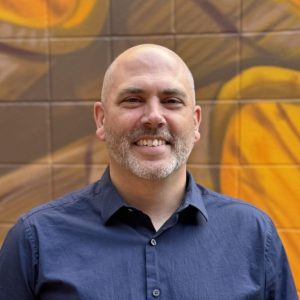 Scot Wirth is the Director of Operations at Little Free Library, where he oversees customer service and fulfillment operations, manages facilities and service providers, and lends support wherever it’s needed most. With a can-do spirit and a heart for service, Scot plays a vital role in keeping the book-sharing movement running smoothly behind the scenes.
Scot Wirth is the Director of Operations at Little Free Library, where he oversees customer service and fulfillment operations, manages facilities and service providers, and lends support wherever it’s needed most. With a can-do spirit and a heart for service, Scot plays a vital role in keeping the book-sharing movement running smoothly behind the scenes.
His favorite book, Killing Custer by James Welch, reflects his appreciation for powerful storytelling. His work helps bring stories like that to readers around the world. For Scot, the best part of working at Little Free Library is the people: “I am humbled that I get to work with all of these amazing people, and honored to be part of this incredible organization attempting to change the world, one little library at a time.”
Putting one of the boxes in your neighborhood creates a greater sense of community. You stop, you see what kind of books are in there, and someone else stops. Now you're talking to that person. You may have never seen them before, but you live a block away from them.
Scot Wirth
More great podcast episodes.
Season 7 | Episode 1
The L&D Approach That Actually Works
Season 6 | Episode 18
That’s a Wrap!
Season 6 | Episode 17
Work-Life Integration
Season 6 | Episode 16
Laughing it Off
Season 6 | Episode 15
Corporate Volunteerism in Action
Season 6 | Episode 14
Collaborative Play at Work
Season 6 | Episode 13
The Science of Supportive Workplaces
Season 6 | Episode 12
The Power of Being Present
